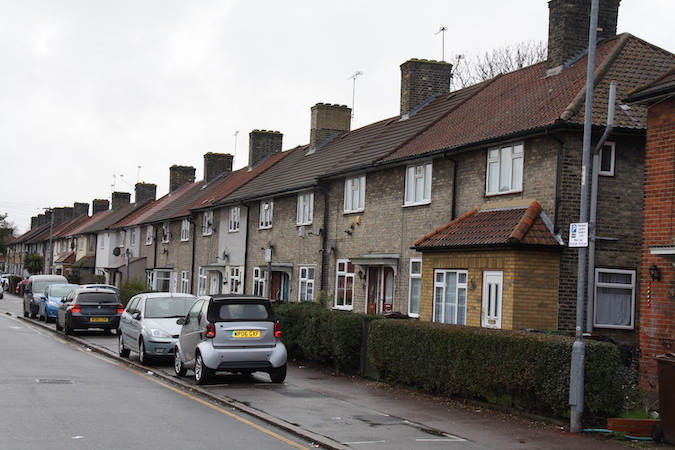For a healthier, greener, less congested London, it’s time to rethink the capital’s parking policies – including how much we pay for residential parking. That’s the message of a new report from the Centre for London think tank – launched via a Twitter question and answer session rather than a public session, as protective measures in the coronavirus health crisis began to take hold.
In normal circumstances, the capital is increasingly congested – in fact London is in the top ten most congested cities in the world, and with the population set to grow by a million over the next decade.
“There is now a growing consensus that tackling the challenges of congestion, air pollution, carbon emissions, road danger and physical inactivity requires a reduction in motor vehicle usage and an increase in the use of public transport, walking and cycling,” the report says. But “mode shift” is stalling, with Mayor Khan’s Transport Strategy target for 80 per cent of all journeys to be by public transport, walking or cycling by 2041 now unlikely to reached until 2075.
Car ownership levels, at 56 per cent of households, have fallen just four per cent in a decade, and the number of “sustainable” trips, now at 63 per cent of the total, has not increased over the last three years. Yet kerbside car parking still takes priority at the expense of other uses – and the figures are stark. There are more than three million licenced motor vehicles in London, 43 per cent of them parked on-street, on average for at least 95 per cent of the time.
On-street parking takes up space equivalent to around 10 Hyde Parks, and resident and short-stay spaces, end to end, would stretch from the UK to the United States. Meanwhile the city’s car owners, generally among the better off, are getting a good deal, with annual operating costs per resident parking space far higher than the cost of a permit: £336 on average in inner London compared to average permits costing from £51 to £230; and £295 for outer London against permit costs between £29 and £154.
It’s time for a change, the report says, with new research suggesting Londoners agree, prioritising trees and green space, pavements free of clutter, children’s play space and community/recreation space for street use above on-street parking for residents.
The report calls for a “more intelligent and dynamic approach to managing parking and the use of kerb space”, with the capital’s boroughs, currently operating policies which can seem “piecemeal and haphazard”, in the front line.
Councils should now be setting out a new hierarchy for road and kerb space usage, committing to gradual reallocation of space from parking, with caps on the numbers of parking permits issued and charges raised to cover operating costs.
Workplace Parking Levies could be introduced “as part of a package of measures to shift travel-to-work patterns, common charging structures based on emissions should be implemented, with higher charges for additional vehicles, and car clubs should be encouraged alongside a “mobility credit” system incentivising a move to sustainable transport. Investment in new technology, including automated charging and “dynamic” pricing, would help manage demand for kerb space.
There’s still a battle of hearts and minds to be won, with 52 per cent of car-owners asserting that parking should be “high priority” for street use in their area, and alternatives to car use still limited, in outer London in particular. But “what we need now is action,” the report concludes, and “for London to accelerate towards the greener, safer, healthier city that will benefit us all.”
OnLondon.co.uk is dedicated to improving the standard of coverage of London’s politics, development and culture. It depends on donations from readers. Can you spare £5 (or more) a month? Follow this link if you would like to help. Thank you.

